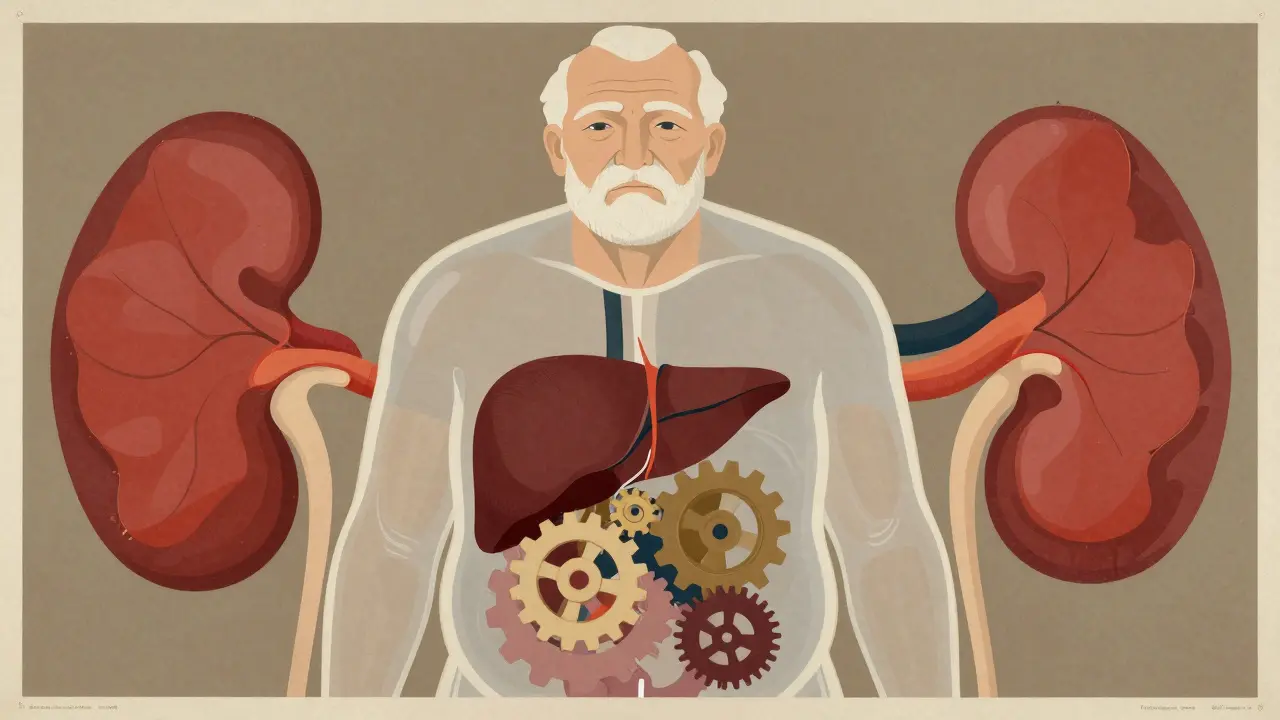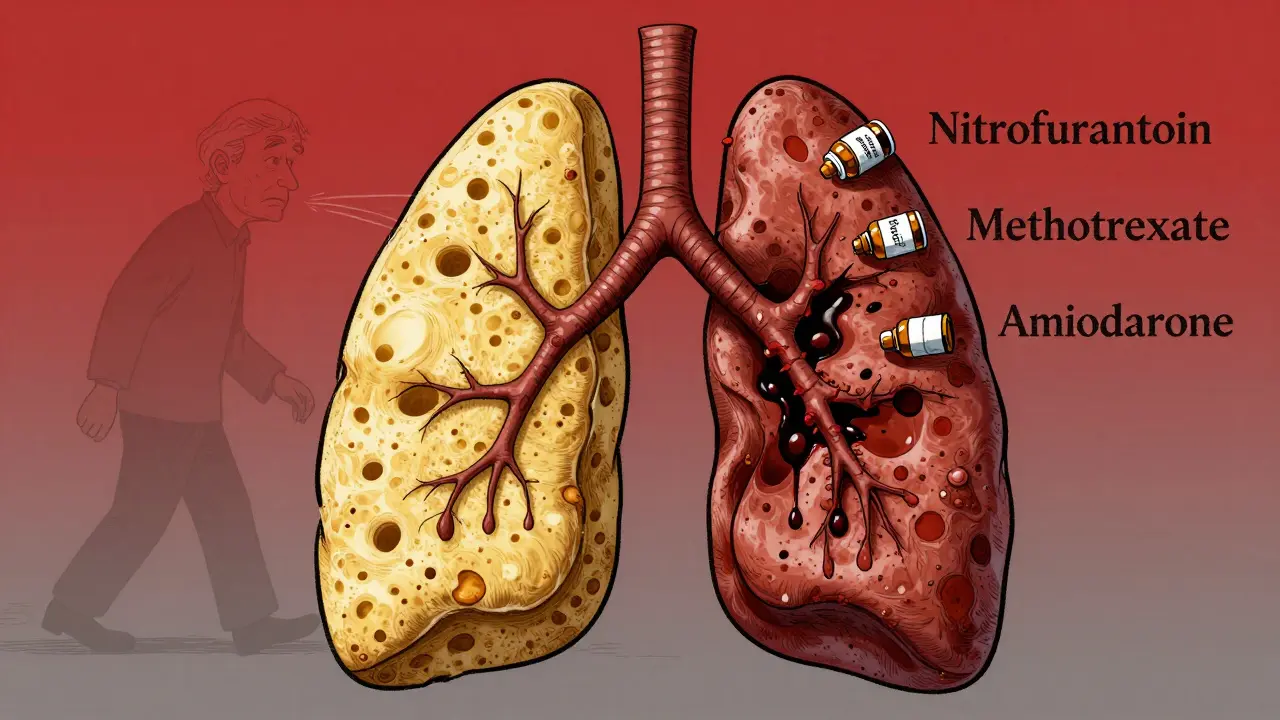Introduction: The Connection Between Muscle Stiffness and Sleep
As a fitness enthusiast, I often find myself struggling with muscle stiffness, especially after an intense workout session. It got me thinking, "How does muscle stiffness affect my sleep?" After doing some research, I found out that muscle stiffness and sleep are indeed interconnected. Muscle stiffness can lead to poor sleep quality, and poor sleep quality can, in turn, contribute to muscle stiffness. In this article, I will share six effective ways to relax your muscles for a better night's rest. So, let's dive in and explore how to get a good night's sleep while keeping muscle stiffness at bay.
1. Pre-Bedtime Stretching: Ease Your Muscles Before Sleep
Stretching before bed is an excellent way to release muscle tension and promote relaxation. Simple stretching exercises can help increase blood flow to the muscles, which reduces stiffness and encourages a more restful sleep. Here's a simple stretching routine that you can do before bedtime:
- Neck stretches: Gently tilt your head from side to side and forward and backward.
- Shoulder rolls: Slowly roll your shoulders forward and backward in a circular motion.
- Arm stretches: Reach your arms overhead and then behind your back.
- Hamstring stretches: Sit on the floor with your legs extended, and reach for your toes.
- Hip stretches: Lie on your back, bend one knee, and pull it towards your chest.
- Calf stretches: Stand facing a wall, place your hands on the wall, and extend one leg behind you. Push your heel towards the floor and hold.
Remember to hold each stretch for 15 to 30 seconds and breathe deeply to maximize relaxation.
2. The Power of Massage: Releasing Muscle Tension
Massage is a well-known method for reducing muscle stiffness and promoting relaxation. It helps improve blood circulation, which in turn aids in the removal of waste products from the muscles. Moreover, massage stimulates the release of endorphins, the body's natural painkillers and mood elevators. You can either go for a professional massage or self-massage using a foam roller, massage ball, or even your hands. Target areas where you feel the most tension and stiffness, such as your neck, shoulders, and lower back. Remember to use gentle pressure and avoid causing any pain or discomfort.
3. Soothing Baths: A Warm Way to Relax Your Muscles
A warm bath can work wonders for muscle stiffness and relaxation. The heat from the water helps to increase blood flow, which aids in the relaxation of stiff muscles. Adding Epsom salt to your bath can further enhance this effect, as the magnesium in Epsom salt can help reduce inflammation and promote relaxation. Soak in the warm bath for 15 to 20 minutes, and remember to keep the water temperature comfortable – not too hot or too cold. To make your bath even more relaxing, try adding some essential oils like lavender, chamomile, or eucalyptus, which are known for their calming effects.
4. Mindfulness Meditation: Relax Your Mind and Body
Mindfulness meditation is a practice that involves focusing your attention on the present moment and accepting it without judgment. It has been shown to reduce stress, anxiety, and muscle tension, which in turn can lead to better sleep. To practice mindfulness meditation, find a quiet and comfortable place to sit or lie down. Close your eyes and take slow, deep breaths. As you breathe, bring your attention to your body and notice any areas of tension or discomfort. With each exhale, imagine releasing the tension from these areas. If your mind wanders, gently bring it back to your breath and body sensations. Practice this for 10 to 20 minutes before bed for best results.
5. Establish a Relaxing Bedtime Routine: Wind Down Your Day
Establishing a relaxing bedtime routine can help signal to your body that it's time to wind down and prepare for sleep. This can be especially helpful for reducing muscle stiffness, as a calm and relaxed state of mind can help promote physical relaxation as well. Your bedtime routine might include:
- Reading a book
- Listening to calming music
- Practicing deep breathing exercises
- Sipping on a cup of herbal tea (such as chamomile or valerian)
- Dimming the lights in your bedroom
Choose activities that you personally find calming and enjoyable, and try to stick to your routine consistently each night.
6. Optimize Your Sleep Environment: Create a Sanctuary for Rest
Your sleep environment plays a crucial role in the quality of your sleep. A comfortable and relaxing sleep environment can help reduce muscle stiffness and promote restful sleep. Here are some ways to optimize your sleep environment:
- Invest in a supportive and comfortable mattress and pillows.
- Keep your bedroom cool, dark, and quiet.
- Use blackout curtains or a sleep mask to block out light.
- Use a white noise machine or earplugs to block out noise.
- Remove electronic devices from your bedroom, as the blue light emitted from screens can interfere with sleep.
By creating a sleep sanctuary, you can improve your chances of getting a better night's rest and waking up feeling refreshed and free from muscle stiffness.
Conclusion: Take Charge of Your Sleep and Muscle Health
Muscle stiffness and sleep are closely intertwined, but by taking a proactive approach, you can improve both your sleep quality and muscle health. By incorporating pre-bedtime stretching, massage, soothing baths, mindfulness meditation, a relaxing bedtime routine, and an optimized sleep environment into your daily life, you can reduce muscle stiffness and enjoy a more restful and rejuvenating sleep. So go ahead, try out these techniques, and experience the benefits for yourself!







Singh Bhinder
April 29, 2023 AT 07:03Stretching before bed can seriously loosen up those tight spots you feel after a heavy lift. Focus on neck rolls and hamstring stretches to get the blood flowing. Holding each move for 20‑30 seconds lets the muscles relax naturally. Deep breaths while you stretch also cue your nervous system to wind down. It’s a simple habit that can turn restless nights into smoother sleep.
Kelly Diglio
May 5, 2023 AT 03:22I totally get how muscle tension can hijack your sleep schedule, especially when you’re juggling workouts and a busy day. The article’s point about massage is spot‑on; increasing circulation really does help flush out metabolic waste. Even a quick foam‑roller session can mimic a professional therapist’s pressure without the cost. Adding magnesium‑rich Epsom salts to a warm bath further calms the nervous system, which many people overlook. Mindfulness meditation, as described, not only eases mental stress but also reduces physical tightness via slow breathing. Consistency is key-making these practices a nightly ritual trains your body to associate bedtime with relaxation. If you combine stretching, a brief massage, and a few minutes of meditation, you’ll likely notice deeper, more restorative sleep. Give it a try for a couple of weeks and track how you feel in the morning.
Carmelita Smith
May 10, 2023 AT 23:40Those hip stretches really hit the spot! 😊
Liam Davis
May 16, 2023 AT 19:59Massage isn’t just a luxury; it’s a physiological tool that boosts blood flow, reduces lactic acid buildup, and triggers endorphin release, which can calm the mind. When you apply gentle pressure to sore areas-like the trapezius or lower back-you’re essentially sending a “relax” signal to your nervous system. A self‑massage with a lacrosse ball can target trigger points that regular stretching might miss. Remember to keep the pressure tolerable-pain indicates you’re overdoing it! Combining massage with a short warm shower can amplify the relaxation effect. This duo often works wonders for nighttime comfort.
Arlene January
May 22, 2023 AT 16:17I love the idea of winding down with a calming routine-reading a good book or sipping chamomile tea really sets the mood. Dimming the lights an hour before bedtime helps signal melatonin production. Light stretching, followed by deep breathing, can further release tension that builds up during the day. Keeping electronics out of the bedroom reduces blue‑light exposure, which can otherwise sabotage sleep. Consistency in these habits will make your body anticipate rest, easing muscle stiffness naturally.
Kaitlyn Duran
May 28, 2023 AT 12:36One thing many people miss is the temperature of the bedroom; keeping it cool, around 65 °F, encourages your core temperature to drop, which promotes deeper REM cycles. A supportive mattress that contours to your body can prevent pressure points that cause micro‑twitches during sleep. White noise machines drown out sudden sounds that might cause you to tense up mid‑night. Adding a few lavender drops to a warm bath not only soothes muscles but also engages the olfactory system for relaxation. Consistently practicing these steps turns your sleeping space into a true sanctuary. Over time, you’ll notice less morning stiffness and a more refreshed feeling.
Terri DeLuca-MacMahon
June 3, 2023 AT 08:54Alright, folks, let’s break down why these six strategies are a game‑changer for beating muscle stiffness and snoring the night away. First off, pre‑bedtime stretching isn’t just a vague suggestion; it’s a targeted release of accumulated tension that builds up after those heavy lifts you brag about on Instagram. When you slowly roll those shoulders and stretch your hamstrings, you’re actually boosting synovial fluid flow, which lubricates the joints for smoother movement. 🌟 Second, massage-whether done by a pro or yourself with a foam roller-acts like a pressurized massage gun for your circulatory system, flushing out metabolic waste. The endorphin surge that follows is like nature’s Valium, calming both body and mind. 🧘♂️ Third, a warm soak with Epsom salts introduces magnesium directly through the skin, combating inflammation at the cellular level; think of it as a spa day in your own tub. Fourth, mindfulness meditation isn’t some new‑age fluff; the practice of diaphragmatic breathing lowers cortisol, the stress hormone that keeps muscles in a constant state of readiness. 📿 Fifth, establishing a bedtime routine-reading, tea, light music-creates a Pavlovian cue for your nervous system to switch from fight‑or‑flight to rest‑and‑digest mode. When your brain sees those familiar signals, it releases melatonin, paving the way for deep, restorative sleep. Lastly, your sleep environment is the silent partner in this whole equation; a supportive mattress, blackout curtains, and a cool room temperature form the perfect stage for your body to unwind without interruptions. 🚀 By stacking these habits, you’re essentially building a multilayered defense system against muscle stiffness, turning your bedroom into a recovery hub. Give each tip a solid week, track how you feel, and adjust as needed-your muscles (and your alarm clock) will thank you! 😴💪
gary kennemer
June 9, 2023 AT 05:12The detailed rundown you shared really hits the nail on the head, especially the point about magnesium absorption through Epsom salts. From a physiological perspective, lowering cortisol via meditation indeed creates a cascade that benefits muscle recovery. I’d add that incorporating a brief progressive muscle relaxation routine right before sleep can further amplify the relaxation response you described. It's a low‑effort addition that aligns well with the existing steps. Overall, your comprehensive approach makes a solid case for a holistic sleep‑recovery protocol.
Payton Haynes
June 15, 2023 AT 01:31Yeah, right, just stretch and sip tea, and all the muscle pain disappears.
Earlene Kalman
June 20, 2023 AT 21:49That article is just a collection of vague wellness fluff with no real science.
Brian Skehan
June 26, 2023 AT 18:08Stretching may not be a miracle cure, but ignoring muscle tension only makes the problem worse over time.
Andrew J. Zak
July 2, 2023 AT 14:26I appreciate the thorough explanation, especially the emphasis on consistent routines. Consistency truly is the unsung hero in sleep hygiene.
Dominique Watson
July 8, 2023 AT 10:45While the recommendations are valuable, it is essential to consider individual physiological differences before adopting a universal regimen. Tailoring practices to one's own body type ensures optimal results.
Mia Michaelsen
July 14, 2023 AT 07:03Great summary, Terri, but remember that not everyone tolerates magnesium in the form of Epsom salts; some may experience skin irritation. Alternately, dietary magnesium or supplements can be a viable option.